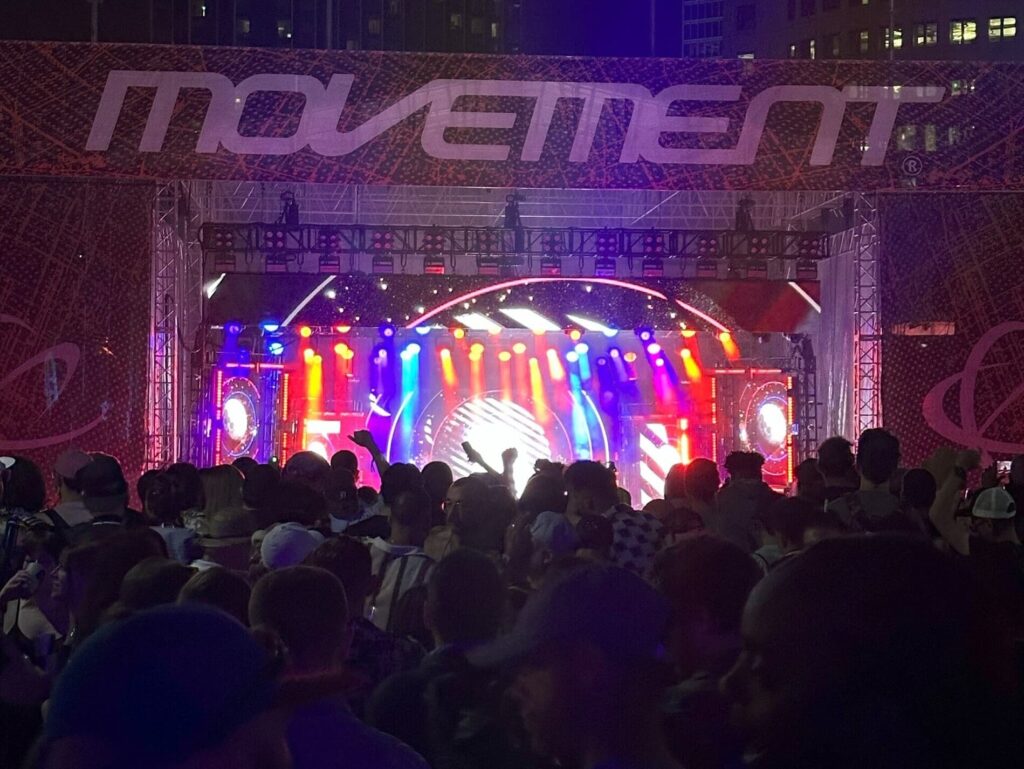Movement Detroit 2024 set the standard for dance music festivals, focusing on fan experience and supplying damn good music.
At the surface, Movement Detroit 2024 was just another installment of the annual three-day Detroit bash for Memorial Day Weekend. The lineup and after parties were stellar. The attendance was comparable to previous years despite the weather. The line for Island Noodles remained perpetually busy. Digging appropriately beneath the surface, however, what made this iteration special was the spirit of the people.
Since 2006, booking agents at Paxahau have routinely secured talent attracting a multitude of fans. From purists coming out of their subterranean hibernation to budding newbies making their way into the cryptic cavern, the underground converges onto Hart Plaza to celebrate the deeply beloved culture of techno.
This year, the attendees were the headliners at each of the festival’s six stages. The crowd felt younger, more energized, and collectively refreshed.
In 2022, the first post-pandemic edition of the festival boasted over 110,000 attendees, well surpassing the annual daily attendance average of 25,000-30,000. Despite spirited performances from artists eagerly returning to the cherished city plaza along the Detroit River, the culture felt amiss and overprotected in some way to this writer. Veterans were perceived as holding their noses above newcomers, insulating their sacred space. It makes sense, though. The world was adapting to a “new normal,” and “social distance” was a buzzword conceived in it’s most literal sense.
The following year, tech house evolved into a cultural phenomenon and harder, faster techno snuck into popularity through social media. Neophytes descended upon the 14-acre festival grounds as if Dom Dolla, John Summit, Charlotte de Witte and Sara Landry were spearheading a religious gathering. This settlement wasn’t necessarily welcomed by older members of the congregation, as super fans were seemingly peeved by the sheer volume of kandi-covered whippersnappers.
Third time’s a charm, right? Where the two previous iterations observed tiny cliques in full-sleek black isolated from the rainbow-wrapped crews, this year was a perfect blend of ages, outfits and musical tastes, uniting as one passionate target demographic.
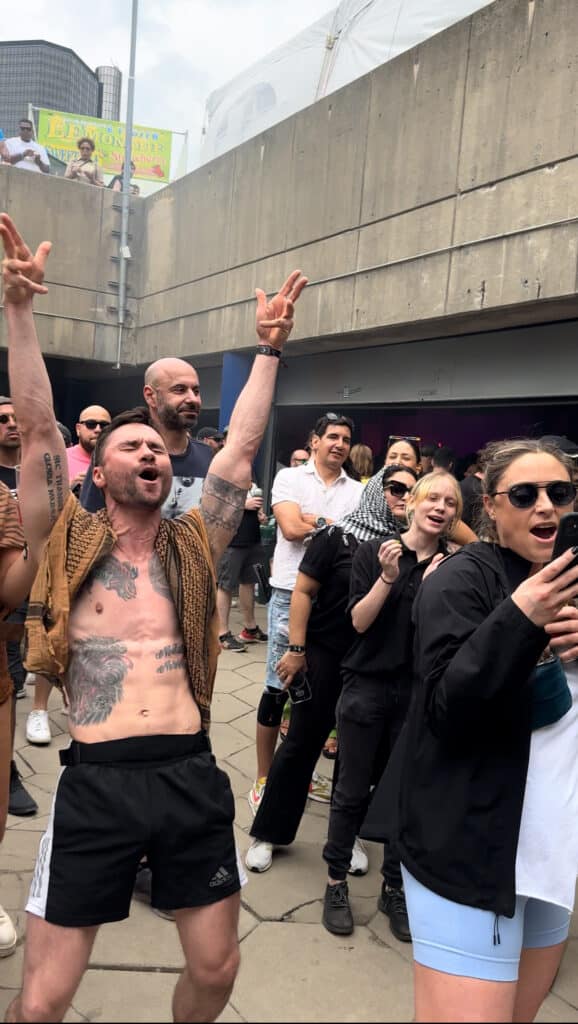
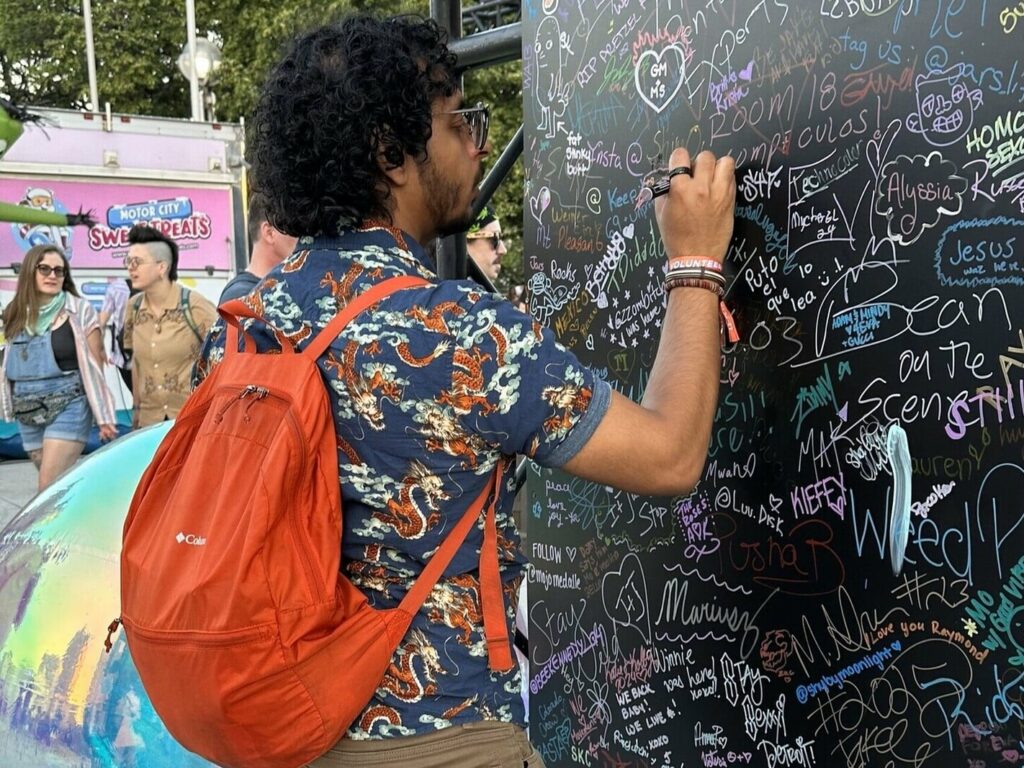
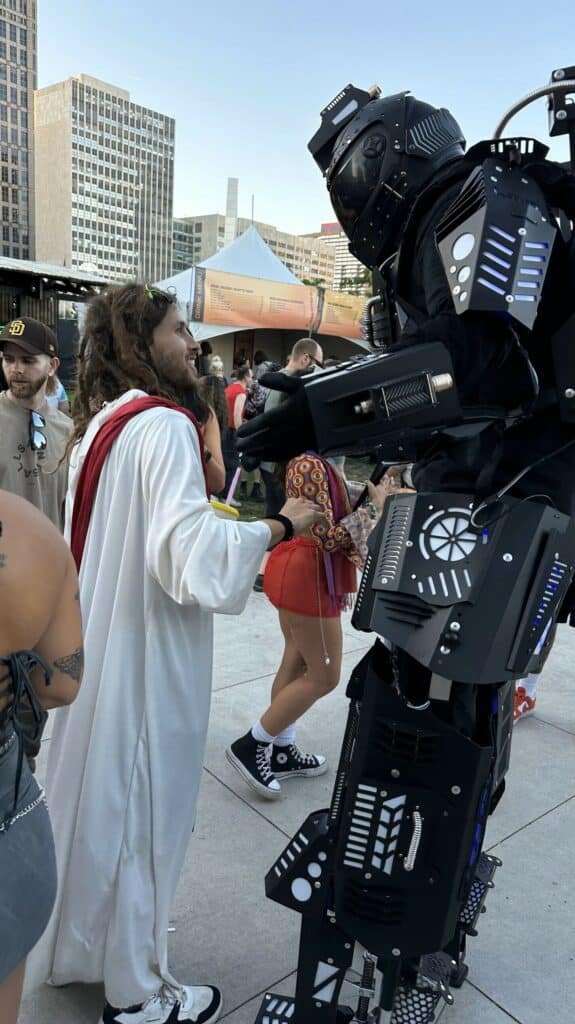
The delightfully minimal production of each stage allowed for the focus to remain where it should always be: The people in the city enjoying music, community, art, and simply having fun.
While other festivals stage grand designs, fireworks and fine details tailored for maximum content generation, there was a peculiar, soothing disconnection to the outside world within the festival gates of Movement. Naturally, everyone was still attached to their phones throughout the weekend — but it was evident that the music and real life experiences were their top priorities.
Each stage was filled with dancing fans wherever there was an open spot. The strong performances of the artists never let energy subside, feeding off each other as if techno was their gasoline.
Richie Hawtin, Solomun, Mona Black, Will Clarke and DJ Minx warmed dancers above ground keeping their feet moving to combat brisk temperatures and sharp winds. At the Underground stage, Patrick Mason, Indira Paganotto, Skin on Skin, and Fatima Hajji turned up the heat with lively exhibitions for festival goers at the second most popular stage.
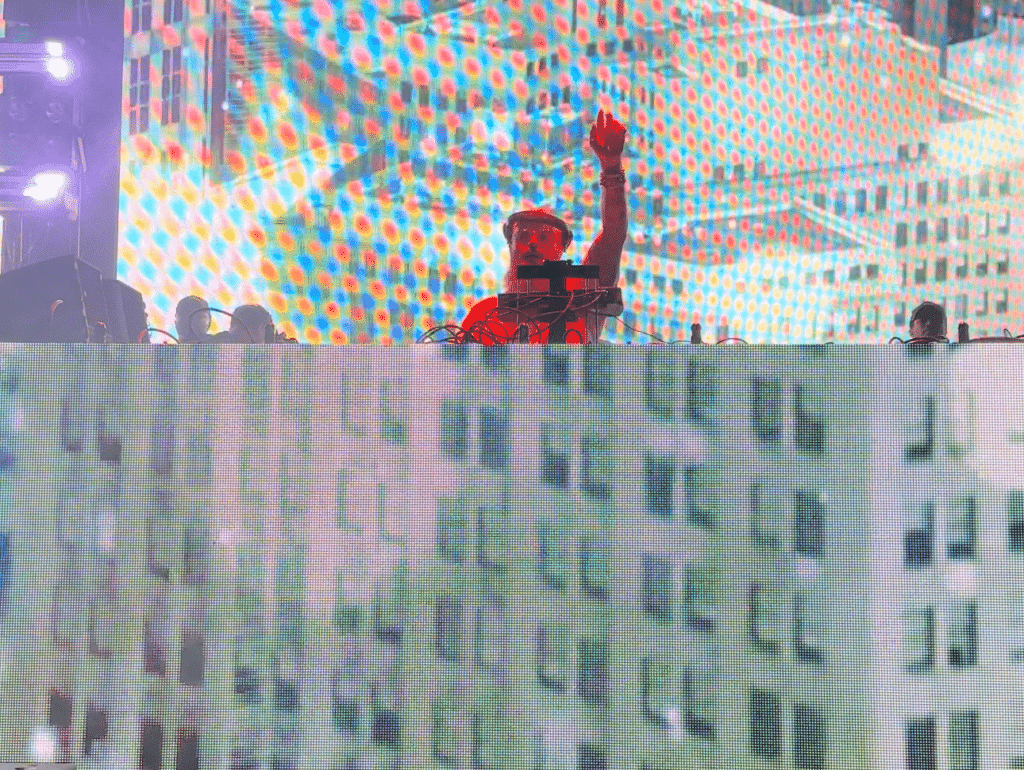
That’s not to say everything was perfect. Various performers at the Underground stage saw grumbling faces exiting mid-set due to the overwhelmingly loud sound system. As day turned to night, the sub and bass reverberated densely, penetrating earplugs and causing discomfort. Techno’s revered frequencies had become it’s villain. Packs of friends were fragmenting, sifting through the crowd and covering their ears, escaping to safety at the free water station.
Still, Movement 2024 left a lasting impression. With an alarming number of festival cancellations casting a dark shadow over the dance music community, the impact on Detroit’s crowned jewel was negligible. The roots of techno sprouted proudly, leaving feelings reminiscent of the days before phones stole everyone’s attention. We can only hope this pattern continues in Detroit for years to come.
